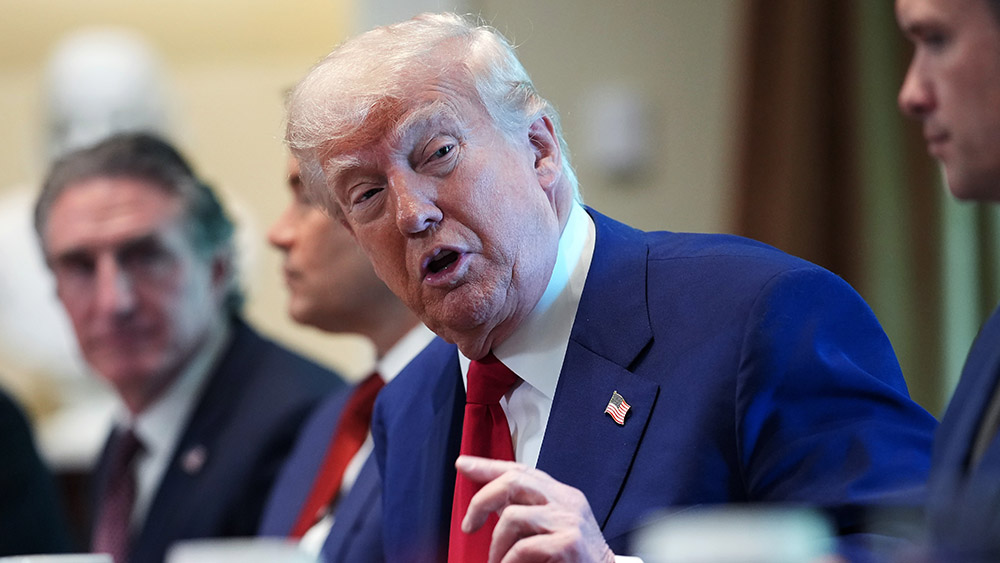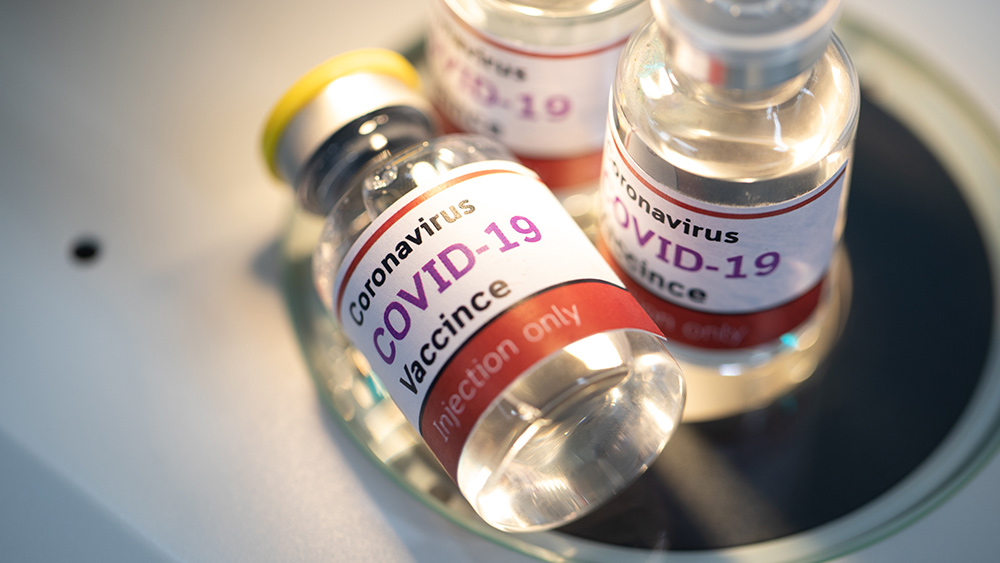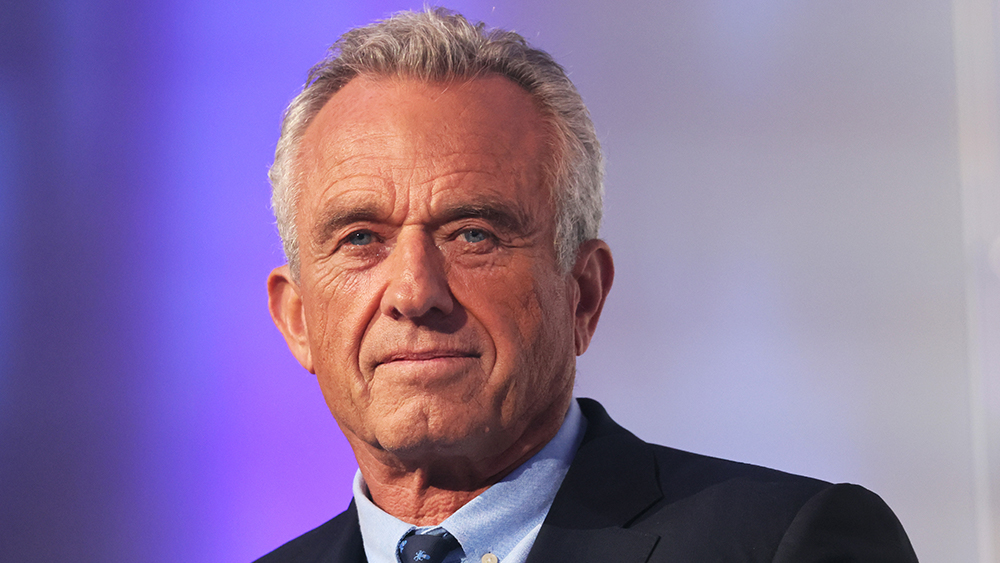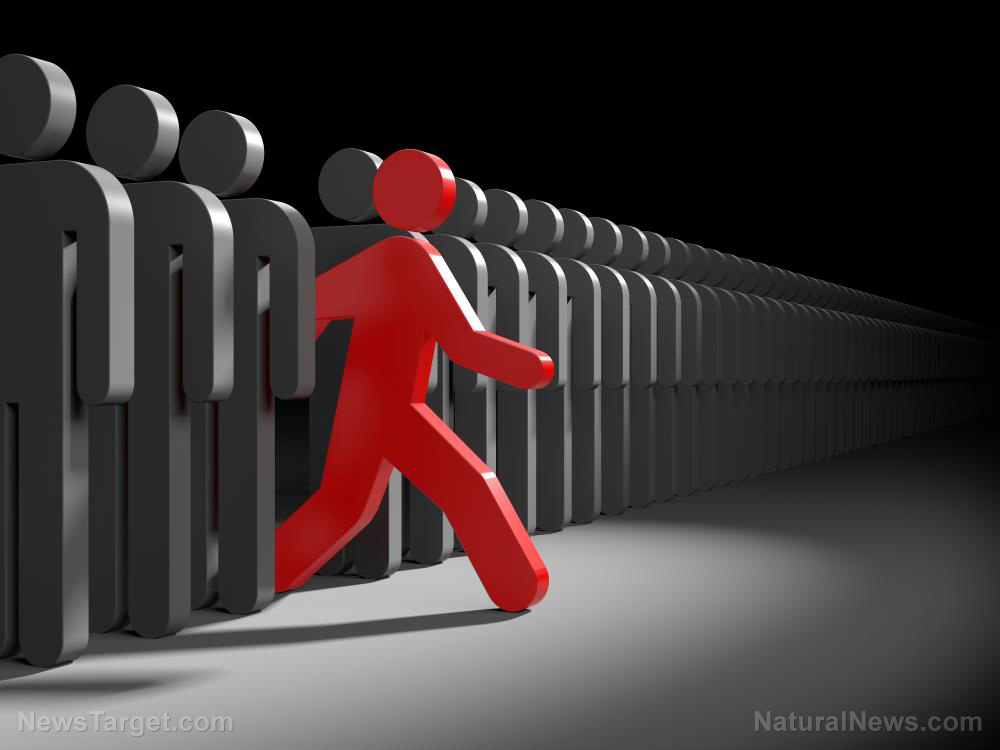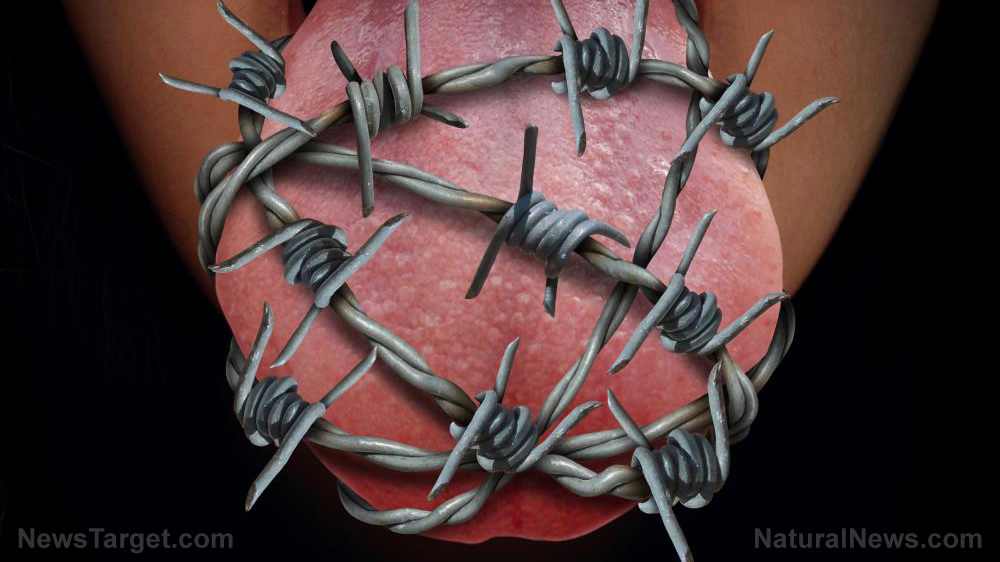“End of Slavery Summit” on BrightU: Leslie Powers discuss the psychology of powerlessness
08/06/2025 / By Jacob Thomas
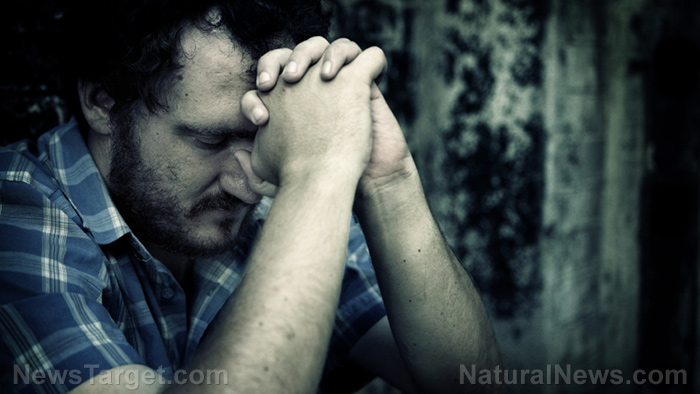
- On Day 8 of the “End of Slavery Summit,” Leslie Powers discussed how depression and political passivity are linked to an externalized locus of control, the belief that solutions depend on external forces (e.g., governments, experts) rather than personal agency. This mindset fosters helplessness and compliance.
- Externalized control mirrors abusive relationship dynamics, conditioning people to seek permission, fear dissent and outsource morality. Statism thrives when individuals absolve themselves of responsibility, relying on centralized authority.
- Cory Endrulat noted that authoritarian parenting imprints obedience, teaching children that “control belongs to others,” priming them for lifelong submission or a craving for dominance.
- Passive obedience breeds isolation, depression and superficial relationships. Powers highlights examples like avoiding neighborly conflict (e.g., calling authorities instead of talking directly).
- Reclaiming internal sovereignty — through critical thinking, reducing systemic dependencies (e.g., debt, consumerism) and building authentic community — is key. Freedom emerges from daily choices that affirm personal agency: You are the sovereign of your life.
On Day 8 of the “End of Slavery Summit,” aired on August 2, clinical social worker Leslie Powers and Cory Endrulat unpacked a disturbing trend: the overlap between depression and political passivity. The key, Powers argued, lies in locus of control, the degree to which individuals believe they influence their own lives.
Mental health crises and political obedience may be more connected than we think. Powers revealed how an externalized sense of control fuels both personal despair and societal submission. When people believe change must come from politicians rather than themselves, they become passive victims, ripe for manipulation.
“When a person faces difficulties, do they see the power to make change within them or do they believe solutions lie in external forces, politicians, governments or experts?” Powers asked. Those who default to the latter, she explained, often struggle with helplessness, anxiety and depression. Worse, they become vulnerable to authoritarian control.
The concept isn’t new. Psychologist Julian B. Rotter’s Locus of Control Theory distinguishes between:
- Internal: “I make things happen.”
- External: “Things happen to me.”
Powers linked externalization to compliance during crises like the Wuhan coronavirus (COVID-19) pandemic: “People said, ‘I’m not a doctor, I need experts to tell me what’s true.’ That’s external locus of control. They obeyed without questioning because they doubted their own capacity to discern truth.”
The conversation took a darker turn when Powers connected passive obedience to statism, the belief that centralized authority is necessary for societal order. “If we all say, ‘We need an external force to change people,’ we absolve ourselves of responsibility,” she noted. This mindset, she argued, mirrors the dynamics of abusive relationships: Citizens become conditioned to seek permission, fear dissent and outsource morality.
Endrulat highlighted the parallel: “If you’re raised to obey, ‘Do as I say,’ you’re imprinted with the idea that authority is legitimate and challenging it is dangerous.” Powers agreed, citing childhood development: “Kids with authoritarian parents learn early: ‘Control belongs to others.’ That primes them for lifelong submission or a craving to wear the crown themselves.”
The consequences are stark. Passivity breeds isolation, depression and what Powers calls “a superficial intimacy,” relationships stripped of authentic connection. “People are terrified to be vulnerable, to confront issues directly. Instead, they call animal control over a barking dog rather than talk to their neighbor,” she said wryly.
The solution? Reclaiming internal monarchy — self-mastery through critical thinking, emotional resilience and moral accountability. Powers emphasized incremental steps:
- Question dependencies (e.g., degrees as validation, blind trust in institutions).
- Detach from systems (e.g., debt, excessive consumerism).
- Build community (e.g., face-to-face connections over digital escapism).
“Every decision is a crossroads,” she urged. “Say no to what pulls you closer to the beast. Freedom isn’t a single leap — it’s daily choices.”
For those drowning in despair, Powers offered a lifeline: “Depression often stems from believing ‘I’m powerless.’ But when you shift to ‘I have agency,’ everything changes. That’s how revolutions start: inside.”
The path from helplessness to rebellion begins with a simple, radical idea: You are the sovereign of your life. Statism thrives when you forget that.
More from Day 8 of the “End of Slavery Summit”
Day 8 of the “End of Slavery Summit” doesn’t end there. Here’s a summary of the topics tackled by other speakers:
Doriane Greens discussed:
- How dance and art are tools to reclaim freedom, emphasizing their role in trauma release, healing and resisting societal conditioning. She shared how her dance channel evolved from entertainment to spreading natural law principles.
- Her personal experiences with her authoritarian father, a police officer and contrasted it with her mother’s skepticism of systems like 9/11. She highlighted how questioning state control led her to reject statist mindsets.
- How modern music manipulates emotions, while traditional instruments (e.g., drums, flutes) awaken organic movement and freedom. Greens urged experimentation with frequencies like 432Hz for energetic alignment.
- Trends that suppress individuality, stressing that true art requires uninhibited self-expression. Greens shared her journey from rigid ballet training to embracing freer, traditional dances as acts of defiance.
- Passio’s seminars (e.g., Unholy Feminine) for clarifying systemic oppression. She framed his work as “keys” to dismantle mind control, urging listeners to reclaim sovereignty through art and self-awareness.
Alex Dahi discussed:
- How governments operate as covert slavery systems, originating from the Latin “gubernare mente” (mind control). He emphasized that authority is an illusion maintained through psychological manipulation by ruling elites.
- How aligning behavior with natural law, such as non-harmful actions, was essential for true freedom, rejecting political/”greater good” justifications for coercion.
- Why is politics a “dialectical theater” controlled by hidden powers, criticizing libertarians/monarchists for tolerating “limited slavery.”
- How collective education and trauma healing can dismantle systemic slavery, advocating non-compliance.
- Michael Tellinger’s “Slave Species of the God” to trace human enslavement to ancient interventions. Endrulat linked modern corporate structures (post-1871 U.S.) to legalistic subversion of abolitionist morality.
Want to know more?
If you are ready to break the chains that bind you now, skip the wait and unlock instant access to all episodes and bonus content with the “End of Slavery Summit” package here. This is your chance to watch on your terms, at your pace–no delays, no censorship, no compromise. Because when it comes to freedom, why wait, when you can wake up now?
Upon purchase, you will get instant and unlimited access to all “End of Slavery Summit” episodes, curated learning tools, 30 unique speaker gifts, 27 bonus videos from host Cory Endrulat, essential bonus eBooks, 60 clips from “The Liberator 2 Showcase Event Community Wisdom” and printable graphics and ads you can use to share the message.
Sources include:
Submit a correction >>
Tagged Under:
abusive relationships, anxiety, authoritarian control, childhood development, compliance, critical thinking, depression, emotional resilience, enslaved, freedom, helplessness, isolation, locus of control, mental health, moral accountability, obedience, political passivity, revolution, self-mastery, societal submission, statism, Tyranny
This article may contain statements that reflect the opinion of the author
RECENT NEWS & ARTICLES
COPYRIGHT © 2017 BIG GOVERNMENT NEWS


